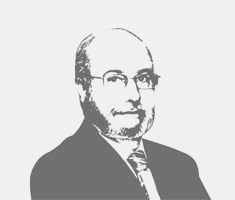The value of reputation and corporate responsibility in the intangible economy
The management of key intangibles, such as reputation, responsibility, communications, branding, and public issues has become one of the main elements in business management. 80 % of the total value of an organisation currently lies in its intangible assets and resources, as opposed to the situation a few decades ago. ((Ocean Tomo, 2015.)) The success of long-term sustainable projects therefore lies in the excellent management of these intangibles. But are organisations ready? The answer is a clear ‘no’ according to the results of the annual surveys in the main world economies. Corporate executives accept that intangibles have an increasing weight, but only 16 % claim that they are ready to adequately manage them. ((Reputation Institute (2014), Playing the win in the Reputation Economy.)
Successfully leading in the 21st century means competing to achieve the trust, respect, admiration, and empathy which generates support and favourable behaviours in their main stakeholders
Organisations are starting to realise that, in order to successfully lead in the 21st century, they must compete not only in terms of market share, size, or financial variables, but also to achieve the trust, respect, admiration, empathy, and support of those who are crucial for their survival: their main stakeholders, namely their employees, customers, shareholders, and society as a whole. This new approach will revolutionise business management by introducing stakeholders’ expectations and demands in decision-making. Leading by the recognition granted by others means introducing mechanisms for active listening in organisations, and being subject to the stakeholders’ scrutiny on a continuous basis, in order to identify specific areas for improvement and for internal transformation processes and organisational schemes that support the experiences delivered by the company to all its stakeholders in all its physical and virtual points of contact. Integrated and comprehensive management of intangibles is thus the only way to achieve this transformation that makes us unique and non-replicable, and leads us to excellence. We can only improve in our short-, medium-, and long-term performance if we are familiar with the relevant stakeholders’ opinions and value judgements about us and include them in everyday business.
 The relevance of intangibles lies in their direct and highly tangible contribution to the creation of financial and social value. In recent decades, the direct impact of reputation, the brand, and experience on the creation of favourable or unfavourable attitudes towards organisations, triggering high-value behaviours such as investing, buying, wanting to work, and recommending, has been proven. ((Carreras, Alloza, Carreras, (2013), Reputación Corporativa (Corporate Reputation). Lid Editorial Biblioteca Corporate Excellence.))
The relevance of intangibles lies in their direct and highly tangible contribution to the creation of financial and social value. In recent decades, the direct impact of reputation, the brand, and experience on the creation of favourable or unfavourable attitudes towards organisations, triggering high-value behaviours such as investing, buying, wanting to work, and recommending, has been proven. ((Carreras, Alloza, Carreras, (2013), Reputación Corporativa (Corporate Reputation). Lid Editorial Biblioteca Corporate Excellence.))
Good reputation and brand strength should be understood as the result of long-term good practice in these seven dimensions: 1) product and service offering; 2) corporate management and governance integrity; 3) workplace suitability and employee alignment; 4) capacity for innovation; 5) financial performance; 6) commitment and responsibility towards citizens; and 7) the company’s vision and leadership and the quality of its executives’ management. In this way, we can see how responsibility and integrity play a key role in building a good reputation.
All experts agree that responsibility has a direct impact on a company’s reputation. In fact, the findings from the latest global studies on corporate reputation confirm that, according to citizens, 41 % of a company’s reputation depends on the three dimensions (integrity, citizenship, and work environment ((Reputation Institute (2014). Results of the RepTrak Pulse longitudinal analyses.))) that measures and assesses what might be called a company’s sustainability and responsibility. Thus, now more than ever, organisations should have a responsible behaviour that is consistent with their vision and innermost identity (their raison d’être) to trigger favourable behaviours in their stakeholders. This way of understanding a company’s role means creating economic and social value in the communities in which it operates. Many recent surveys show that consumers have a more positive and favourable view of companies that are involved in the main social issues and are willing to pay extra if a product comes from a responsible company. According to the Edelman Trust Barometer (2015), 81 % of citizens in the 25 most important countries believe that a company should generate financial profits while improving the economic and social conditions in the territories in which they operate. The recent results of the Havas Media (2015) study on the main brands also highlight the importance that people grant to companies’ and brands’ active contribution to solving economic, social, and environmental problems (82 %) and assistance in the improvement of our quality of life and well-being (80 %).
Organisations face the challenge of correctly selecting leaders who are able to understand the economic, social, and geopolitical context, in order to build bridges for company-society trust
Accepting this responsibility is the way of expressing a company’s respect for the interests of the society in which it operates, which is proven in practice when it assumes the commitment to mitigate negative impact and maximise positive impact through its activity on its key stakeholders’ life and future development. Thus, there are great opportunities for non-replicable differentiation, based on companies’ attitudes and behaviours. Organisations face the challenge of correctly selecting leaders who are able to understand the economic, social, and geopolitical context, in order to build bridges for company-society trust and clearly define the identity and values that define and structure the organisation. This is what makes them unique and different from their competitors.

